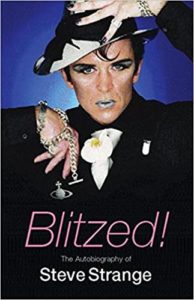I never really had a fear of flying – at least not in the sense it stopped me doing anything. I just get nervous at take-off and then, generally, I am fine. I like a decent sized jet with seats that have sufficient padding on the arms so that, when I grip them, my knuckles can go white without serious injury to my hands
Why do I put myself through this on a regular basis? Occasionally I have to travel for work. Travel, they say, broadens the mind and I am sure that it does. But sometimes I wonder why I have to put myself through the ordeal.
I am not the greatest person to get on an aeroplane but for the best part of four years my working life has meant dealing with (and visiting) customers across Europe. I really enjoy these trips and it’s great to meet people face-to-face that you would only normally deal with on the telephone or via email. And, although I shouldn’t moan, the downside is that I never get to see any of the fantastic places that I go to. I’ve lost count of the number of times that I have been to Milan and never seen anything other than airports, offices and taxis. It’s such a shame.
I never really had a fear of flying – at least not in the sense it stopped me doing anything. I just get nervous at take-off and then, generally, I am fine. Â I like a decent sized jet with seats that have sufficient padding on the arms so that, when I grip them, my knuckles can go white without serious injury to my hands. Once in the air, I am OK. Nothing to bother me until the return journey. So it’s not really too bad travelling to most of Europe for business. I appreciate the fact that I can travel and count myself lucky that it’s only a few minutes of unease.
So, here I am today in Dundee. Â I have customers to see here who are very pleasant people to work with. I’ve been planning this trip for a couple of weeks and I had planned to take the train until I realised that, at best, it was going to be a six hour journey. Â I had to take a flight to give me any chance of doing some other work today.
Now these flights are the worst. I can’t stand the small 30-seater planes (that seem to be a cross between propeller and jet driven) that bring you here. My nerves are shot and my palms sweaty. At take-off it’s easy to mistake the arm of the person in the next seat with that of the plane. Again, I am fine once high enough not to be shaken around by a passing air current that, I suspect, has desires to knock us 500 miles off course. That moment, however, as we’re picking up speed and racing down a runway, sends a panic through me that I hate. Â Unlike those other journeys, these small planes seem to make me sweat and grip for longer than normal. The planes don’t go as high and so I can see the land – which I don’t think is good for me.
The fear is, of course, irrational – at least these flights are no different from the others. The more nervous I get about taking this short flight the worse I feel. I know that it is silly and I become annoyed by my own fear – I’ve taken so many flights it should be like taking a bus (which I think I do less than flying). I can’t stop the sick feeling. Every lurch of the plane, every shake and noise is analysed in a way I do not do with larger aircraft. Every expression on the stewardesses face analysed for a sign – should that clunk have happened? Should that beep be sounding? Should this window rattle so much?
And the very worst bit of it all? I know I have to do it backwards tomorrow evening.
Next time, I’ll take the train (maybe).
Why do I put myself through this on a regular basis? Occasionally I have to travel for work. Travel, they say, broadens the mind and I am sure that it does. But sometimes I wonder why I have to put myself through the ordeal.
I am not the greatest person to get on an aeroplane but for the best part of four years my working life has meant dealing with (and visiting) customers across Europe. I really enjoy these trips and it’s great to meet people face-to-face that you would only normally deal with on the telephone or via email. And, although I shouldn’t moan, the downside is that I never get to see any of the fantastic places that I go to. I’ve lost count of the number of times that I have been to Milan and never seen anything other than airports, offices and taxis. It’s such a shame.
I never really had a fear of flying – at least not in the sense it stopped me doing anything. I just get nervous at take-off and then, generally, I am fine. Â I like a decent sized jet with seats that have sufficient padding on the arms so that, when I grip them, my knuckles can go white without serious injury to my hands. Once in the air, I am OK. Nothing to bother me until the return journey. So it’s not really too bad travelling to most of Europe for business. I appreciate the fact that I can travel and count myself lucky that it’s only a few minutes of unease.
So, here I am today in Dundee. Â I have customers to see here who are very pleasant people to work with. I’ve been planning this trip for a couple of weeks and I had planned to take the train until I realised that, at best, it was going to be a six hour journey. Â I had to take a flight to give me any chance of doing some other work today.
Now these flights are the worst. I can’t stand the small 30-seater planes (that seem to be a cross between propeller and jet driven) that bring you here. My nerves are shot and my palms sweaty. At take-off it’s easy to mistake the arm of the person in the next seat with that of the plane. Again, I am fine once high enough not to be shaken around by a passing air current that, I suspect, has desires to knock us 500 miles off course. That moment, however, as we’re picking up speed and racing down a runway, sends a panic through me that I hate. Â Unlike those other journeys, these small planes seem to make me sweat and grip for longer than normal. The planes don’t go as high and so I can see the land – which I don’t think is good for me.
The fear is, of course, irrational – at least these flights are no different from the others. The more nervous I get about taking this short flight the worse I feel. I know that it is silly and I become annoyed by my own fear – I’ve taken so many flights it should be like taking a bus (which I think I do less than flying). I can’t stop the sick feeling. Every lurch of the plane, every shake and noise is analysed in a way I do not do with larger aircraft. Every expression on the stewardesses face analysed for a sign – should that clunk have happened? Should that beep be sounding? Should this window rattle so much?
And the very worst bit of it all? I know I have to do it backwards tomorrow evening.
Next time, I’ll take the train (maybe).





